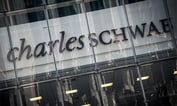Employed American adults overestimate the value of workplace benefits available to them, according to a survey published Wednesday by the American Institute of CPAs.
Survey participants estimated that their benefits represent 40%, on average, of their total compensation, whereas the Bureau of Labor Statistics puts the average at 31.7% of the total compensation package.
Still, employees see value in the perks they receive. Eighty percent of respondents said they would choose a job with benefits over an identical job that offered 30% more salary but no benefits.
“A robust benefits package is often a large chunk of total compensation, but it’s the employees job to make sure they’re taking advantage of it to improve their financial positions and quality of life,” Greg Anton, chairman of the AICPA’s national CPA financial literacy commission, said in a statement.
“Beyond the dollar value of having good benefits, employees gain peace of mind knowing that if they can take a vacation without losing a week’s pay or if they need to see a doctor, they won’t be responsible for the entire cost.”
The Harris Poll conducted the online survey within the U.S. in late April among 2,026 adults, among whom 1,115 identified as employed full time or part time.
Asked which three workplace benefits would help them reach their financial goals, 56% of respondents cited 401(k) match or health insurance, while 33% said paid time off and 31% a pension. In addition, 21% cited flexible working hours and 15% working remotely.
Baby boomers put a significantly higher priority on health insurance and having a 401(k) match than the younger generations. Indeed, of all benefits listed, the desire for a pension revealed the biggest discrepancy among generations: 54% of boomers included it in their top three, compared with just 16% of millennials.
Millennials for their part, now the largest generation in the workforce, prioritized benefits that are most commonly associated with work-life balance, such as paid time off, flexible work hours and working remotely, more so than their older counterparts.









 November 29, 2018 at 04:00 PM
November 29, 2018 at 04:00 PM











